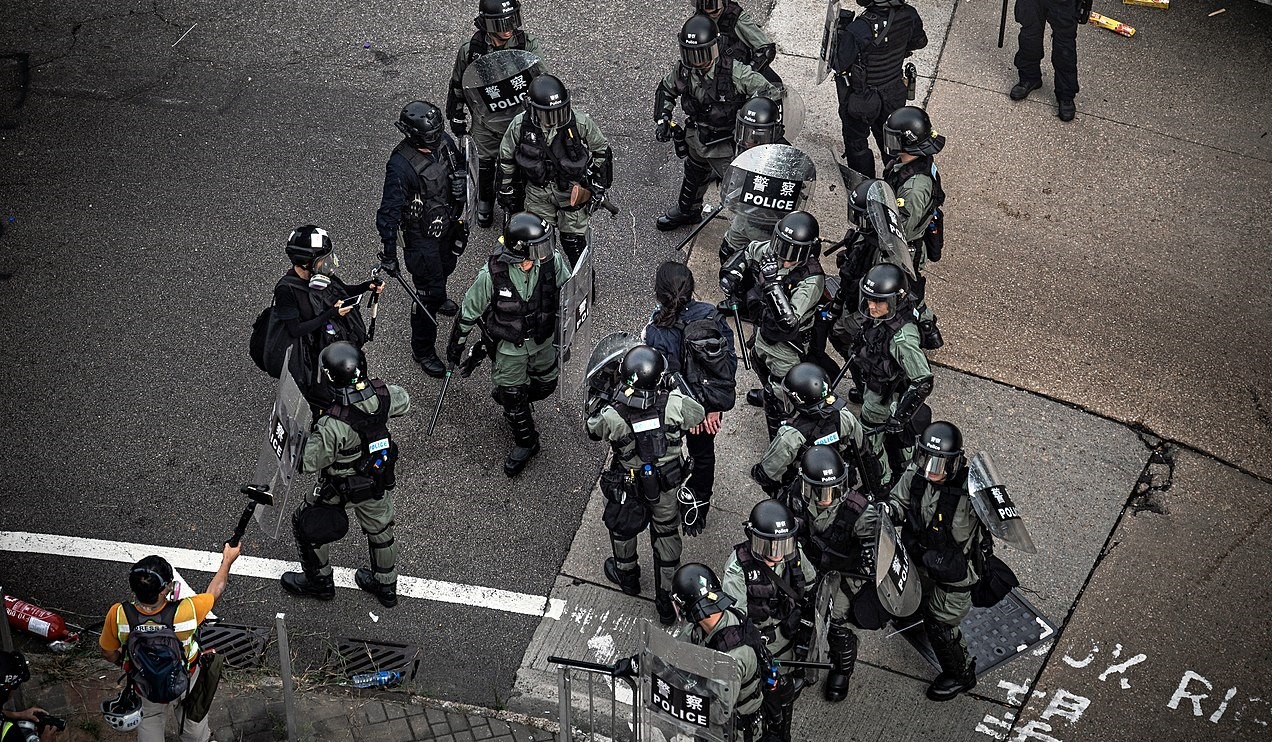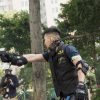After months of clashing with protesters during the anti-ELAB movement, leading to over 450 police officers unexpectedly quitting, the Hong Kong Police Force (HKPF) is now struggling to meet their recruitment targets. But the unaccountable police brutality over the past year has caused anti-police sentiment to skyrocket among Hongkongers, making it difficult to hire locally. Now the HKPF has turned to recruiting overseas on university campuses. In the past month, job postings for “probationary inspector” and “program outreach” have appeared in career center job postings at McMaster University, University of British Columbia, University of Toronto, University of California Berkeley, University of New South Wales, and University of Technology Sydney.
Meanwhile, Cambridge University’s Career Services circulated materials promoting the Police Mentorship Programme Outreach (PMPO)—a program for Hong Kong students currently enrolled at or recently graduated from an overseas university to receive mentorship from a senior police officer. The PMPO is described as “a proactive recruitment strategy to inspire high calibre Hong Kong students…to join the Force as Inspectors.”
In response, student groups were quick to decry university administrators for facilitating the HKPF’s recruitment initiatives. McMaster Stands with Hong Kong—a student-led Hong Kong solidarity group at McMaster University—released a statement, noting that the HKPF has “[fired] over 16,000 rounds of tear gas, 10,000 rubber bullets, and 19 live bullets. Over 7,000 people have been arrested on arbitrary and ill-defined charges, including over 1,400 for ‘rioting’ and over 3,000 for ‘unlawful assembly’.” NSW Hongkongers—a student group from the University of New South Wales—also published a petition describing their university’s support of HKPF-recruitment as “fundamentally against the value of justice and democracy.”
While some universities such as McMaster University, University of New South Wales, and University of Technology Sydney have caved to the demands of these student petitions, others have held their ground. The University of British Columbia insisted that they are following provincial and federal guidelines and that the decision to apply for employment opportunities rested with students. The University of Toronto, who also refused to remove the postings, released an almost identical statement “encourag[ing] all students to look at their interests and values as they make career decisions about which positions to pursue”.
This is not the first time universities have come under fire for collaborating with the HKPF. Cambridge University’s Institute of Criminology has maintained a partnership with the Hong Kong Police Training College since 2016. Its Police Executive Programme, which awards a Masters in Applied Criminology and Police Management to participants, is designed to train elite HKPF officers. The program includes summer courses on policing theory, public order, and so-called “protest management”, and is taught by academics as well as high-ranking British police officers like Ian Blair, the former Metropolitan Police Commissioner, Mark Rowley, the former national counterterrorism chief, and Tom Winsor, England’s chief inspector of constabulary.
Such collaboration is not unique to universities. Many Western corporations, including those involved in the arms trade, do not have political allegiances and in their pursuit for profit, are seldom subservient to broader geopolitics. Just as the arms trade supplies weapons to local police forces in the West, these same corporations also serve this function globally, even in countries that are seemingly at odds with the political interests of the West.
These Western corporations have made a significant profit from the sale of weapons and equipment to the HKPF. While the PROTECT Hong Kong Act passed by the United States Congress on 15 October 2019 barred weapon sales to Hong Kong, the United States government had previously approved the sale of military equipment to the HKPF, which included tear gas, firearms, and vehicles, worth millions of dollars. The Canadian government also granted export permits for the sale of crowd control equipment, small arms, and light weapons to Hong Kong, but refused to respond to inquiries, citing the need to protect corporate secrets. The United Kingdom had also previously exported tear gas canisters and rubber bullets to Hong Kong, which was widely used during the anti-ELAB protests.
Ironically, much of this riot-control technology and the police tactics associated with it first originated in Hong Kong, which served as a testing ground for novel ways to control crowds during the 1967 riots. During this time, the police killed 23 Hongkongers and injured countless more. This period helped popularize new innovations in “less-than-lethal” weapons—such as the wooden bullet and CS tear gas—which became the blueprints for modern riot-control equipment. These tools were designed to maim, instead of kill, avoiding the creation of martyrs who would only galvanize more dissent.
From the 1967 riots to the global arms trade, the HKPF’s violence has a long history of being enabled by Western institutions. These universities’ support of the HKPF’s recruitment efforts is but the latest example of the West’s long standing complicity in abetting police violence in Hong Kong.




